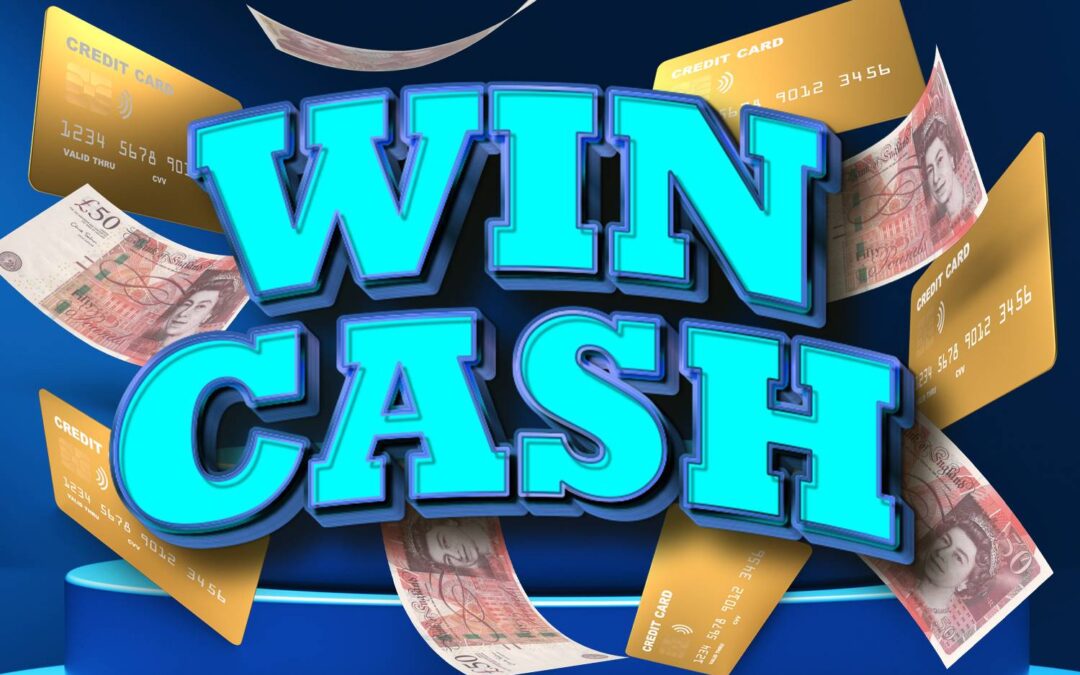This short guide lays out the typical process after an entry is selected in a promotion. First, a notification may arrive by email, postal or registered mail, phone, or social media.
Make sure your name, mailing address, phone, and email are accurate on the form. A simple typo can block a sponsor from contacting a winner.
Claiming a prize often requires affidavits, identity checks, and deadlines. Some steps may need notarization and return by certified mail, fax, or email.
All prizes are taxable in the United States; sponsorships usually issue a Form 1099 for awards over $600. Track delivery, verify any notice through a sponsor’s public phone or website, and avoid fake checks or pressure tactics.
Key Takeaways
- Confirm your entry details so sponsors can reach you.
- Recognize legitimate notifications and verify via public contact info.
- Prepare for affidavits and certified mail deadlines when claiming prizes.
- Report prize value for taxes in the United States and expect Form 1099 for larger awards.
- Avoid common scams like fake checks and high-pressure requests.
- Keep organized copies of all documents and proofs of delivery.
How to use this guide to boost your chances the right way
Treat this guide as a weekly action plan. Break the process into small steps and apply them each week. That steady focus adds up without breaking official rules.
Start by reading the official rules for every sweepstakes entry. Learn eligibility, entry limits, and how the random drawing works for each promotion.
Set reminders and keep a brief log with date, method, and any confirmation code. That simple information helps if a sponsor needs proof after a notification arrives.
Standardize your name, address, email, and phone so sponsors can contact a potential winner fast. Build a weekly checklist: pick reputable sponsors, avoid duplicates, and save the rules.
"A focused routine beats spraying entries everywhere — quality over quantity."
- Budget your time and target niche or local promotions with fewer entries.
- Treat each entry as a mini project: save rules, note deadlines, and track follow-up steps.
Get eligible and enter correctly without breaking the rules
Confirm eligibility and deadlines; an otherwise valid entry can be disqualified for a small omission. Read the official rules before you start and note age, residency, and other limits that affect an eligible win.
Entry methods that count
Common methods include online forms, email survey links, and mail-in write-ins. For example, Walmart’s 2025 Customer Satisfaction sweepstakes accepts three entry routes: survey code via www.survey.walmart.com within one week of the receipt date; a unique email survey URL completed within one week of invitation; or a postcard write-in with your complete name, address, phone number, and date of birth, postmarked by October 31, 2025 and received by November 5, 2025.
Form basics
Fill each form with your legal name and full street address. Double-check your email and phone so a sponsor can send a notification. Use the unique code number or date on receipts when required.
Entry limits, odds, and the random drawing
Respect limits — too many entries or multiple identities can void all attempts. Odds depend on total entries received; follow deadlines and track each entry’s week and date in a log.
- Tip: Capture screenshots or confirmations as proof of timely entry.
- Note: Record prize amount or cash alternatives for tax records.
Win Cash Sweepstakes: What You Need to Know about notifications and scams
Notifications often arrive by email, postal mail, phone, or even direct social messages. Note the date on any notice and keep the original message for your records.
Verify before you celebrate. Call the sponsor using a public number listed on their official website rather than any contact given only in the message. Read the entire notice for deadlines and required documents.
Where notifications arrive
Messages may come by email, voice call, registered postal mail, or social media direct message. Record the date and save screenshots or scans.
Verify before responding
- Always confirm by visiting the sponsor's official site or phoning a published line.
- Do not click links or download attachments until legitimacy is confirmed.
Red flags and common scams
Requests for payment, offers that include a surprise check asking for a wire-back, or pressure for immediate personal information are strong warnings.
"Legitimate sponsors do not require fees to release a prize or threaten disqualification for asking questions."
If fraud is suspected, stop contact, report the incident to the sponsor via a public channel, and consider filing a complaint with the FTC or your state attorney general.
Paperwork that turns a potential winner into a prize winner
Turning a notification into delivery usually hinges on completing specific paperwork promptly. Sponsors often send an affidavit and related forms that confirm identity, eligibility, and acceptance of terms.
Affidavit of eligibility and liability/publicity release
Expect an affidavit that confirms rules compliance and permits use of your name and likeness where allowed. Read every clause and sign every field in the exact order the sponsor requests.
Omissions or wrong information can delay the process or void the claim. Keep copies of the affidavit and any supporting IDs.
Notarization basics
Some sponsors require notarization to validate signatures. Find a notary at banks, shipping stores, or public libraries, and plan for this step in your timeline.
Tax forms and valuation
Sponsors may request a W-9 or other tax form for reporting. That number is used for a later Form 1099 if prizes reach reporting thresholds.
"Complete paperwork in the order requested and return it within the specified time to preserve eligibility."
Deadlines, delivery, and following up so you actually receive the prize
Timely responses and clear records are the difference between receiving a prize and losing it. Return required paperwork by the sponsor’s specified date and keep proof of mailing. Certified mail gives a receipt; many promotions accept fax or an emailed PDF as a time-stamped copy while the hard copy travels.
Return methods that protect you
Use trackable options. Certified mail and courier services provide delivery confirmation. If a form allows, send an emailed PDF first so the sponsor has a copy that shows the exact date and time.
Confirm receipt, track dates, and keep a prize log
Record every relevant date: notification date, response days allowed, and the mailing deadline. Note the tracking number, what was sent, and whom you contacted.
- Save replies: After sending, confirm receipt with the sponsor via official email or a public phone line and save their response.
- Expect a wait: Shipping often takes several weeks; Walmart, for example, ships major awards in about four weeks after signed paperwork.
- Act on errors: If a package is misdelivered or returned, request shipping details immediately and correct the address to protect prize awarded status.
- Keep the log until you receive prize: Include final delivery date and any notes for future claims.
"A clear paper trail and polite, timely follow-up solve most delivery problems."
Taxes on prizes in the United States: what the IRS expects
All awards are taxable under U.S. law. Every amount you receive must be reported as income, even modest items like gift cards or merchandise.

Sponsors often collect a W-9 and issue a tax form later. If total value from one sponsor reaches $600, expect a Form 1099. Still report amounts below that threshold on your return.
Prizes are income: report all amounts, even under $600
- Record details: keep dates, descriptions, and fair market value for each award.
- Tax forms: sponsors may request a W-9 and will send a 1099 listing the reported value.
Cars, trips, and the “taxes on taxes” idea
Non-cash items use fair market value for reporting. For cars and trips, that value may differ from MSRP or retail price due to bulk discounts.
- If a sponsor adds money to cover taxes, that extra money is also taxable.
- If you dispute a reported value, gather quotes or itemized costs and consult a tax pro before filing.
- Plan for estimated tax days and set aside funds so winners avoid surprises at filing time.
"Budget for tax due on awards and keep clear records to reconcile any 1099 differences."
Legal must‑knows: federal rules, state laws, and platform policies
Federal and state requirements shape how contests are run and advertised. Federal law bars deceptive mail offers and the FTC expects clear Official Rules. Those rules must list the sponsor name, prize description and value, eligibility, odds, and how the drawing will work for a united states audience.
“No Purchase Necessary,” clear odds, and truthful promotion
Truthful advertising is required. Include a clear "No Purchase Necessary" option, disclose odds, and post full rules so entrants see exactly how an entry is judged.
State specifics: bonding, registration, and “void where prohibited”
States add steps. Florida and New York require bonds when total prize value exceeds $5,000. New York’s bond must be filed 30 days before launch. Rhode Island needs registration for retail promotions over $500.
Social media and data privacy: house rules and lawful use of information
Platforms set contest policies; avoid banned tactics like like‑gating. Post a privacy notice, collect only needed information, and keep records — sponsors should keep bond or registration number and a clear contact order for notices and winners lists.
"Review promotions with counsel when rules or state filings are required."
After the random drawing: timelines, shipping, and good etiquette
After a drawing, expect a short wait before most prizes arrive and plan follow-up steps now.
Typical timelines: Many programs ship within several weeks. For example, some sponsors send Grand Prizes about four weeks after paperwork, while smaller awards may take 4–6 weeks. If the posted ship window passes by a few days, gather your tracking info and contact the sponsor.
Delays happen: Undeliverable items can be forfeited if they return undelivered. For larger items, such as cars or electronics, confirm required signatures and any scheduling steps so a delivery is not missed.
Practical steps and polite follow-up
- Log the date: Note the award date and expected ship window in your prize log.
- If you don't receive prize: Wait a few days past the window, then send tracking numbers and a brief summary to sponsor support.
- Gift cards: Confirm mailing address and ask for carrier and estimated delivery time; check activation steps on arrival.
- Keep records: Save tracking, case numbers, photos, and serials for higher-value items and update tax notes with the amount and description.
- Be gracious: A short thank-you message to the sponsor often helps and may smooth fulfillment.
"A clear log and calm, timely contact solve most shipping issues."
Conclusion
Conclusion
A tidy log and quick responses make the path from entry to delivered prize much smoother.
Keep contact information accurate and follow each sponsor's order for paperwork and deadlines. Track the date, confirmation number, and any mailed copies so a potential winner can claim prize fast.
Verify notices through public sponsor channels and avoid sending money or sensitive data before confirmation. Record the value of every prize — card, trip, cars, or money — for tax reporting.
Focus on quality entries, practice good habits, and stay organized. Those small steps raise the odds that an eligible win from a random drawing becomes a confirmed recipient.

